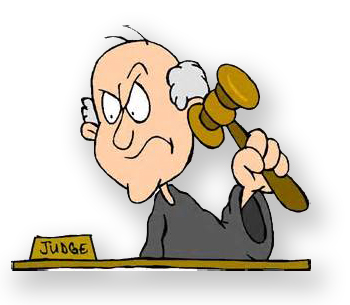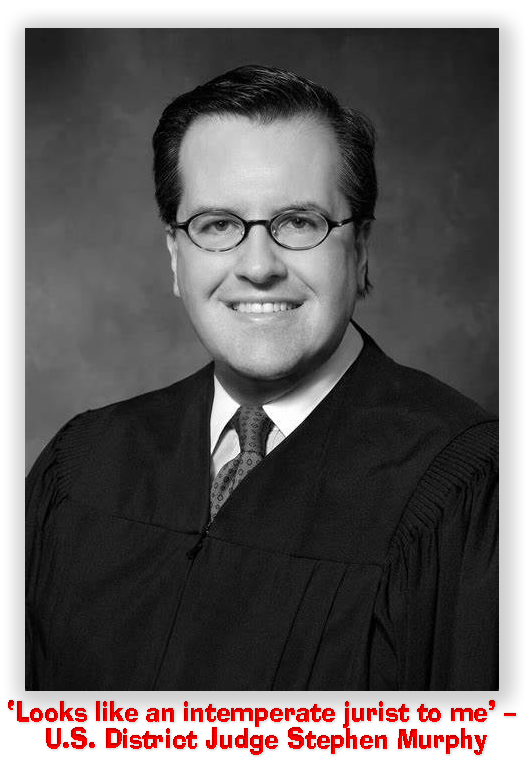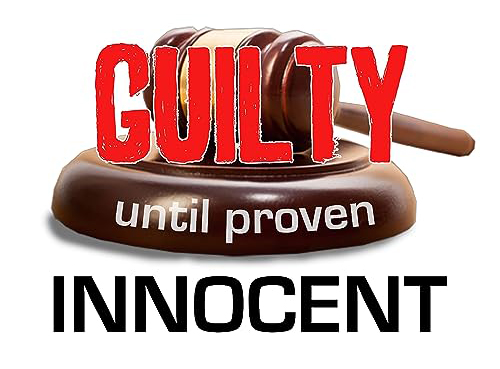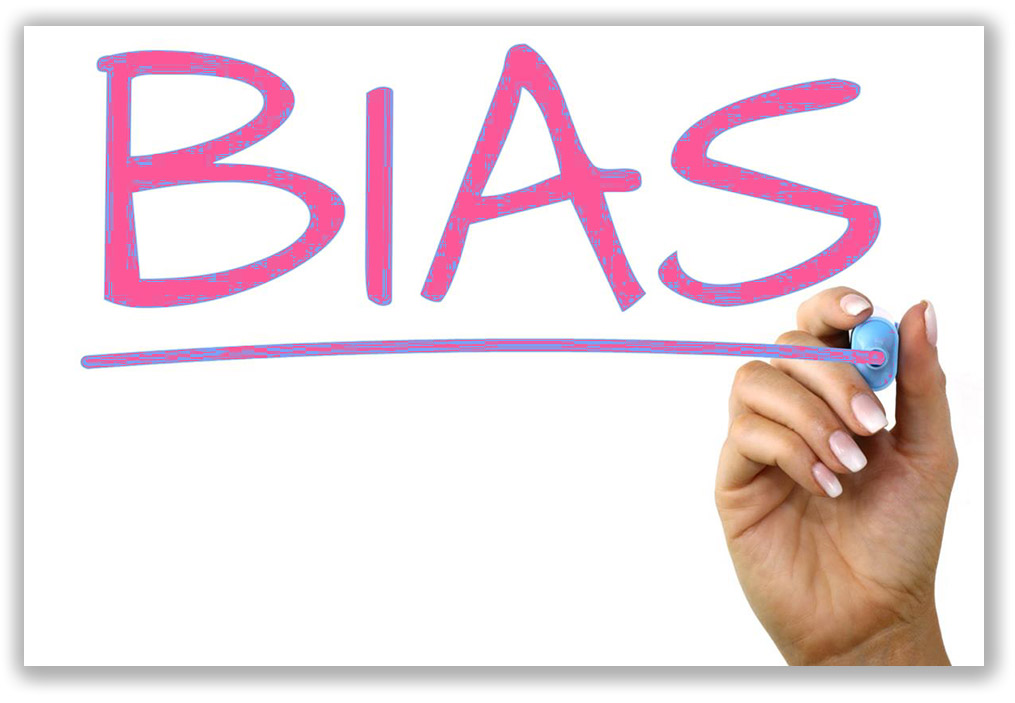If you have a question, please send a new email to newsletter@lisa-legalinfo.com.
We post news and comment on federal criminal justice issues, focused primarily on trial and post-conviction matters, legislative initiatives, and sentencing issues.

DISTRICT JUDGE KICKED OFF CASE FOR PROCEDURAL TIRADE
Maybe it’s climate change or Donald Trump. Perhaps the Supermoon. Blame whatever you want, but I haven’t seen two judicial bias decisions in seven years. Now I’m writing about the second one in seven days.
 Leron Liggins was charged with drug distribution in the Eastern District of Michigan. Using Federal Rule of Criminal Procedure 20, he had brought in a similar pending charge from the Eastern District of Kentucky so he could resolve both at once. On the eve of trial, Leron’s lawyer told the court he wanted to plead guilty, but when he appeared for the change of plea hearing, Leron demanded a new lawyer (for the second time).
Leron Liggins was charged with drug distribution in the Eastern District of Michigan. Using Federal Rule of Criminal Procedure 20, he had brought in a similar pending charge from the Eastern District of Kentucky so he could resolve both at once. On the eve of trial, Leron’s lawyer told the court he wanted to plead guilty, but when he appeared for the change of plea hearing, Leron demanded a new lawyer (for the second time).
US District Judge Stephen Murphy was not amused. He said, “Most defendants don’t get my attention or stand out, but Mr. Liggins does.” After reviewing the tortured procedural history of the case, the Judge said:
I’m tired of this case. I’m tired of this defendant. I’m tired of getting the runaround. This has been going on since February 6, 2018. We’ve got a case out of Kentucky that came here under Rule 20. Rule 20 says the reason for the transfer was the defendant has agreed to plead guilty. I feel as if the Court has been misled. I’ve been told in an official pleading and informally the defendant was going to plead guilty. We canceled jurors. We got a trial date. Now we got this.
Leron tried to talk, but the Judge shut him down, saying, “If you speak anymore, I’ll have you hauled out of here.” Then, turning to Leron’s lawyer, the Judge exploded:
This guy has got my attention. What do you want me to do? This guy looks like a criminal to me. This is what criminals do. This isn’t what innocent people, who want a fair trial do. He’s indicted in Kentucky. He’s indicted here. He’s alleged to be dealing heroin, which addicts, hurts and kills people, and he’s playing games with the Court.
The pandemic and Leron’s demands for other counsel ended up delaying things for a couple more years. Right before the trial was to begin, Leron’s new lawyer moved to have the Judge recuse himself for bias under 28 USC § 455(a).
 The next day, Judge Murphy denied the motion while saying he appreciated the “opportunity to clear up a few things that ha[d] been bothering [him] for a few months.” The Judge incorrectly recounted that Leron had “engaged in a personal colloquy” with the court that had caused the district judge to become “upset.” He had not, unless “STFU” passes for a friendly exchange of views. Nevertheless, for his conduct, the district judge delivered a faux apology:
The next day, Judge Murphy denied the motion while saying he appreciated the “opportunity to clear up a few things that ha[d] been bothering [him] for a few months.” The Judge incorrectly recounted that Leron had “engaged in a personal colloquy” with the court that had caused the district judge to become “upset.” He had not, unless “STFU” passes for a friendly exchange of views. Nevertheless, for his conduct, the district judge delivered a faux apology:
And I want to say right now directly to Mr. Liggins I’m sorry, I apologize for getting upset. I did that because, A, I thought we were going to have a guilty plea; B, I thought that the colloquy was getting out of hand; and C, I lost my head… Now, having said that, I would say two things. Number one, [Leron’s lawyer] in that transcript agreed with my underlying concerns, and number two, just because I got mad does not mean I’m biased against Mr.—Mr. Liggins… I was mad, I was hostile, I was disapproving, and I regret it. I made a mistake by yelling like that, but I wasn’t upset or concluding that Mr. Liggins was—was guilty of an offense or hostile or partial toward him. I concluded he was acting in a manner which was frankly obstructionist and making me mad.
Leron, the Judge is sorry that you behaved so badly that you made him mad. Can you tell how sorry the Judge is?
Neither can I.
The Judge then asserted, “I’m not, trust me. I give Mr. Liggins the same rights and opportunities here to demonstrate his innocence or lack of guilt as any other litigant.”
 (Parenthetical: You have to love the Judge’s standard of proof. All this time we thought the government had to prove a defendant’s guilt. Turns out, at least practicing MurphyLaw, that a defendant has to prove his innocence.)
(Parenthetical: You have to love the Judge’s standard of proof. All this time we thought the government had to prove a defendant’s guilt. Turns out, at least practicing MurphyLaw, that a defendant has to prove his innocence.)
Leron was unable to prove his lack of guilt. He was convicted. After that, he appealed. Last week, the 6th Circuit threw Judge Murphy off the case.
A judge’s misconduct at trial may be “characterized as bias or prejudice” if “it is so extreme as to display clear inability to render fair judgment.” But this takes more than just judicial remarks during the course of a trial that are critical or disapproving of, or even hostile to, counsel, the parties, or their cases. “Expressions of impatience, dissatisfaction, annoyance, and even anger, that are within the bounds of what imperfect men and women sometimes display,” the 6th held, “do not establish such bias or partiality… Only if the remarks reveal such a high degree of favoritism or antagonism as to make fair judgment impossible” does a judge cross the line.
But Judge Murphy found that line, and he crossed it. The appellate court said:
Difficult as the recusal standard may be to reach, we find that the district judge’s unacceptable remarks at the January 30, 2020 hearing satisfy it. Among the many disparaging remarks about Liggins that the district judge made, the most troubling is that Liggins ‘looks like a criminal to me.’ We are highly concerned by this remark, especially when directed toward Liggins, an African American man… These remarks served no purpose for courtroom administration, but rather constituted gratuitous commentary by the district judge about his opinion of Liggins and his feelings about Liggins’ case.
 In classic victim-blaming, the government conceded that Judge Murphy should not have lost his temper, but argues that his frustration was “understandable” based on Leron’s conduct during pretrial proceedings. The 6th shut that argument down flat: “To the contrary, we do not find the district judge’s conduct understandable in the least. The complexity or long duration of a criminal case gives no license to a district court to prejudge the defendant’s guilt or otherwise dispose of the case in any manner except through fair proceedings:
In classic victim-blaming, the government conceded that Judge Murphy should not have lost his temper, but argues that his frustration was “understandable” based on Leron’s conduct during pretrial proceedings. The 6th shut that argument down flat: “To the contrary, we do not find the district judge’s conduct understandable in the least. The complexity or long duration of a criminal case gives no license to a district court to prejudge the defendant’s guilt or otherwise dispose of the case in any manner except through fair proceedings:
Finally, the Circuit ruled, the Judge’s apology – which, even if it should have counted for anything, was two years too late – didn’t matter. “In considering the denial of a motion for recusal pursuant to 28 USC § 455, we do not look to whether the district court made a sufficiently curative apology to the defendant in ruling on the motion; rather, we consider whether recusal was warranted at the time that the defendant made the motion.” Judge Murphy’s “looks like a criminal” comments “demonstrated a deep-seated . . . antagonism that would make fair judgment impossible.”
That was enough to warrant recusal.
United States v. Liggins, Case No. 22-1236, 2023 U.S. App. LEXIS 20040 (6th Cir. Aug. 3, 2023)
– Thomas L. Root





